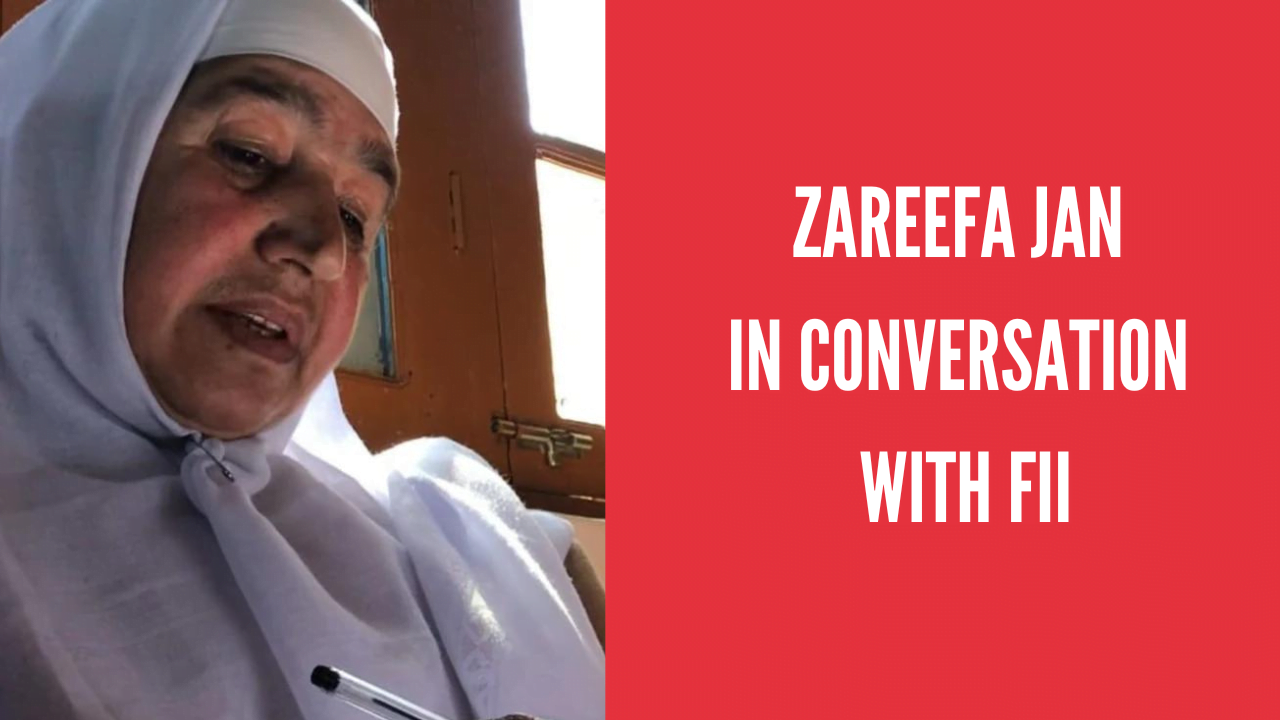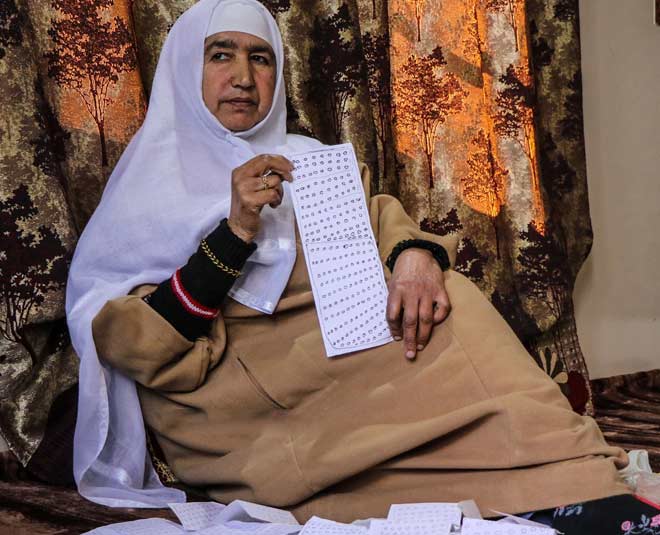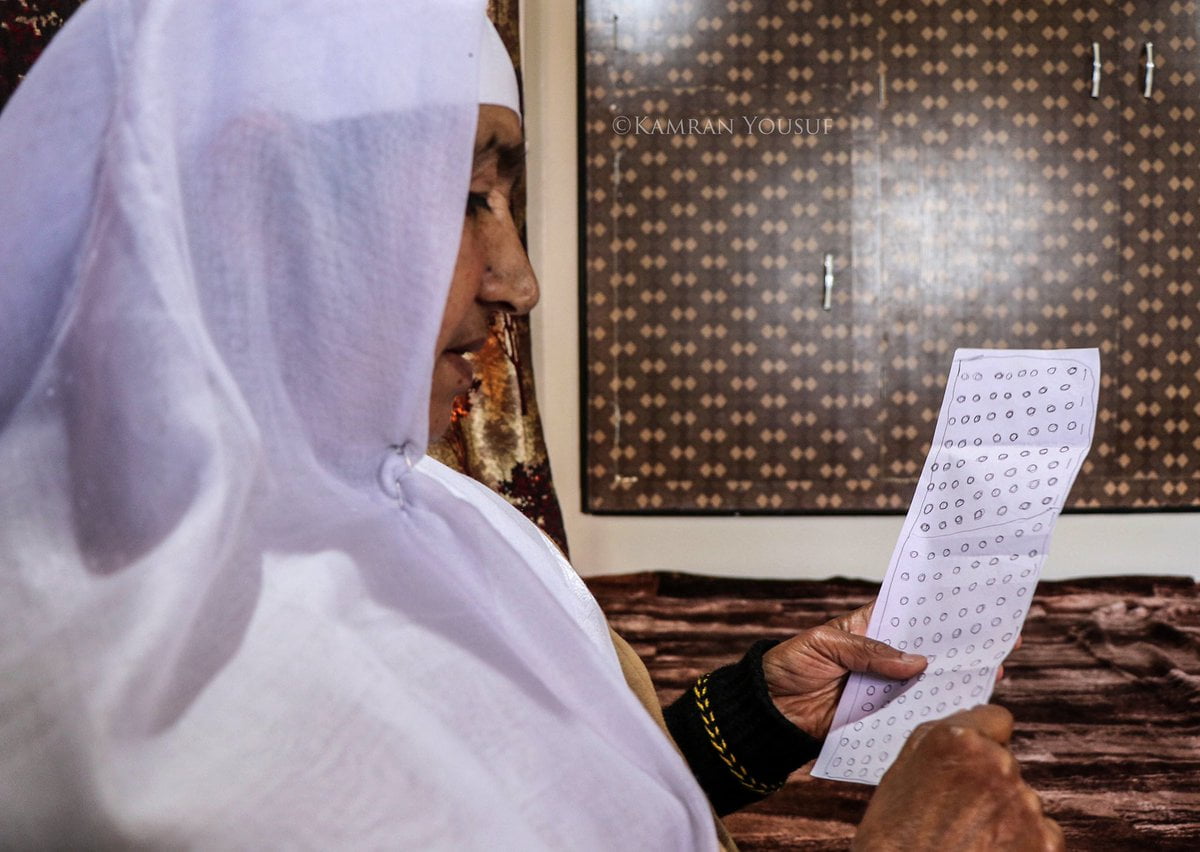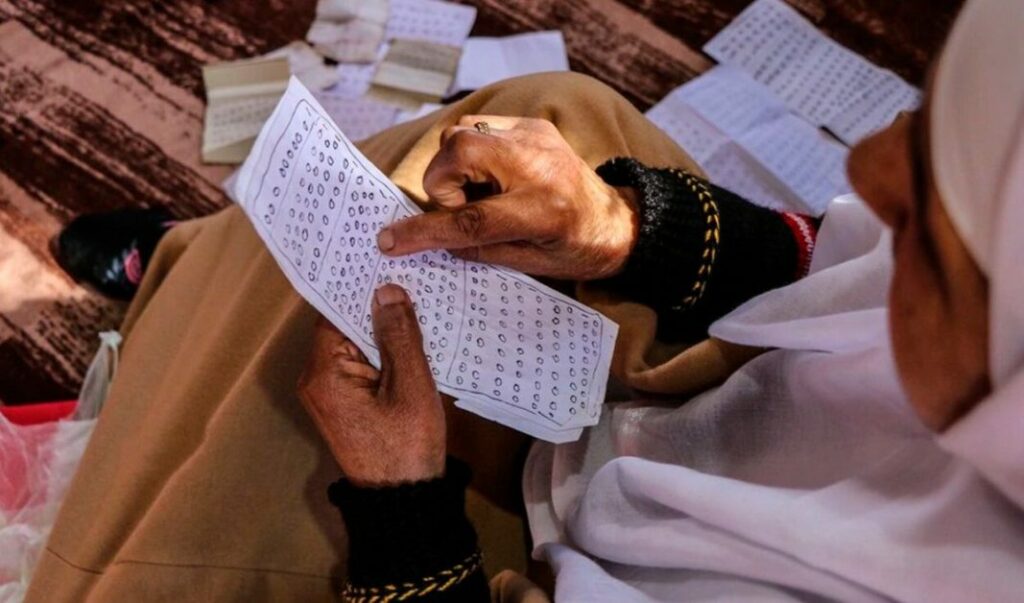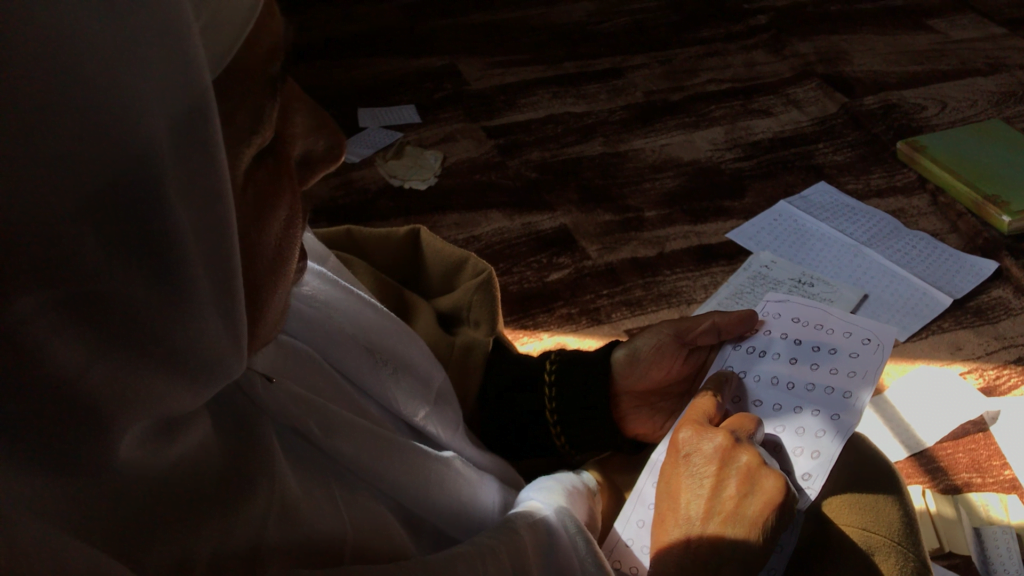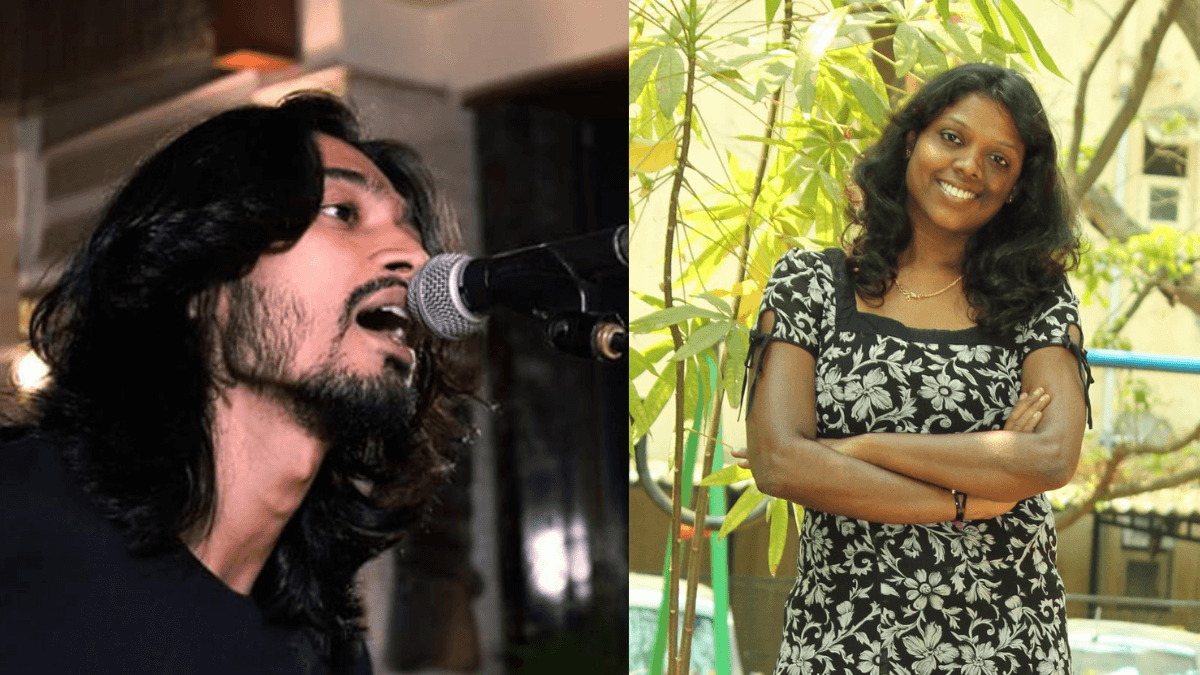Zareefa Jan, a 65-year-old sufi poetess living in north Kashmir’s Bandipora district, has gained widespread recognition for her unique approach to poetry. Despite never having the opportunity to attend school and not being able to read or write, she has developed an extraordinary method of archiving her poetry using what she calls the ‘language of circles‘. This intricate and highly personal code is known only to her and allows her to transcribe her verses in a way that no one else can decipher. In this exclusive interview, Zareefa Jan shares the fascinating story of her poetic journey and the development of her distinctive circle language.
FII: Could you please introduce yourself briefly and provide some background on your life? Additionally, tell us how your journey into the world of poetry began, especially considering your family and children?
Zareefa Jan: I am Zareefa Jan, and I am a 65-year-old Sufi poetess living in Naidkhai village of North Kashmir’s Bandipora. My life has been a tapestry of unique experiences. I never had the privilege of attending school, which meant I couldn’t read or write even in my native Kashmiri language. My poetic journey began later in life, a few years after I got married and had children who were learning to read and write in English and Urdu at school. It took me some time to gather the courage to share my poems with my family. To my astonishment, they were captivated by the content of my verses. However, due to my illiteracy, I had no means to document them until I devised my own coded language of circles.
FII: Can you tell us how you developed your unique language of circles for writing poetry?
Zareefa Jan: This is my language, the language of circles, which I’ve developed over the years. It’s my way of archiving my poetry. Each circle represents a word or concept, and I’ve assigned unique meanings to these circles, making it my own personal alphabet.
This is my language, the language of circles, which I’ve developed over the years. It’s my way of archiving my poetry.
Zareefa Jan
FII: What inspired you to start writing poetry, especially considering you never went to school? How did your journey into Sufi poetry begin and how has it influenced your work?
Zareefa Jan: My journey into poetry started unexpectedly. I was fetching water from a brook one day, and I lost myself in a trance. When I returned to my senses, words flowed out of my mouth in the form of a ghazal. It was a profound experience. However, I couldn’t read or write, not even in my native Kashmiri language, so I had to find a way to document my poems.That’s when I started using circles to symbolise words and concepts, creating my own unique method.
FII: You mentioned the influence of Sufism on your poetry. Could you elaborate on how Sufism has played a role in shaping your work and the themes you explore in your poems?
Zareefa Jan: Sufism has always focused on the esoteric aspects of religious life, and it’s deeply rooted in our region’s history. In my poetry, I explore themes of love, longing, and self-realisation, all inspired by the Sufi tradition. I believe that a person should strive to know their creator, and this concept of self-realisation, inspired by the amalgamation of Shaastra philosophy and Sufism, plays a significant role in my work.
FII: How did you manage to preserve your poems when you couldn’t read or write in Kashmiri, the language your poems came to you in?
Zareefa Jan: It was indeed a challenge. My children were in school, learning English and Urdu, and couldn’t understand Kashmiri. I initially tried to record them on tape. Later, my daughter attempted to transcribe them into Kashmiri script. However, it didn’t quite capture the essence of my poetry.
FII: Can you explain your process of creating these circular symbols and how they help you remember your poems?
Zareefa Jan: Certainly. When inspiration struck, I would grab a piece of paper and draw shapes, often literal ones corresponding to the words in my poem. If there was an apple in my verse, I’d draw an apple within my circle language. These shapes became cues for me to remember the lines until my daughter could transcribe them.
FII: Your use of circles is truly unique. Could you explain how your coded language of circles works and how you decode it?
Zareefa Jan: My coded language of circles is highly personal. I assign meanings to different shapes of circles, but it’s not a fixed lexicon. It’s constantly evolving as I give the circles meanings that only I can remember and decode. When I have a thought, I draw circles and shapes that represent the words or concepts in my poetry. Over the years, I’ve developed a system that only I can understand. It’s like a secret code for my poems.
When I have a thought, I draw circles and shapes that represent the words or concepts in my poetry. Over the years, I’ve developed a system that only I can understand. It’s like a secret code for my poems.
Zareefa Jan
FII: You mentioned that you’re the only one who can read and decode this language of circles. How does that make you feel as a poet?
Zareefa Jan: I feel a deep connection to my poetry through this coded language. It’s a unique form of self-expression. While it’s true that no one else can read it, I’m content with that. The circles serve as a memory aid for me to recall my lines until my daughter can note them down. It’s a personal and intimate way of preserving my art.
FII: Given your unschooled nature, you’ve faced unique challenges in documenting your poetry. Could you please share some of the challenges you’ve faced and describe how you managed to overcome them?
Zareefa Jan: Documenting my poetry has indeed been a challenge, particularly due to my lack of formal education. I’ve relied on my own creativity and developed a coded language of circles to overcome this hurdle. However, I’ve lost a significant portion of my work due to poor health and the constraints of my unsound state. Nonetheless, I continue to strive to preserve my art and share it with the world.
Documenting my poetry has indeed been a challenge, particularly due to my lack of formal education. I’ve relied on my own creativity and developed a coded language of circles to overcome this hurdle
Zareefa Jan
FII: Do you plan to share your poetry with a wider audience, and how do you intend to do so?
Zareefa Jan: Absolutely, my family is working diligently to get my 300 poems published. We plan to present them in both my coded script and in conventional Kashmiri transliteration. This way, more people can appreciate the beauty of these circles that hold my poetry. It’s my hope that my unique expression resonates with others and helps them see the world in a different light.
FII: Could you share a verse or a few lines from one of your favourite poems in this unique style?
Zareefa Jan: Here’s one of my verses:
‘Loole kyn nyezan syeene pyoum darun,
Myah pyou tchaalun zahre almaas.’
(I took the matters of love on my heart
And ended drinking poisonous hemlock).
FII: Do you believe that your journey can inspire other women to pursue their passions and express themselves creatively?
Zareefa Jan: I hope my journey can serve as an inspiration, especially for women in Kashmir. It’s important to follow your heart and not let obstacles hold you back. Whether it’s in the field of poetry or any other form of self-expression, women should have the courage to embrace their creativity and pursue their dreams.
